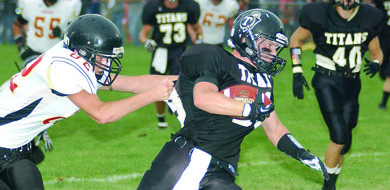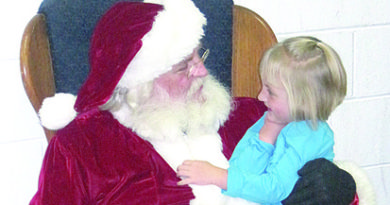There Should Always Be Room For The Mr. Smiths Of The World
Written by
RICHARD HAWS
(Editor’s Note: Richard Haws, a Hebron High School graduate, of Ames, Iowa, is a retired Iowa State University journalism professor. This guest column appeared in the Des Moines Register, Des Moines, Iowa.)
Sometime in the next few months, Jerry Sandusky will be brought before the bar of justice, and we’ll no doubt hear about the awful things the Penn State University football coach did to those vulnerable teenage boys. The testimony will probably make you want to throw up, but I hope we don’t forget that there are adult men out there who have entirely appropriate, personal relationships with teenage boys.
Many years ago, in the late 1950’s and early 1960’s, I was going through my difficult teenage years in Hebron, a town of about 1,900 people in southeast Nebraska. Hebron was no doubt a lot like the small towns across Iowa’s southern tier of counties — rural, isolated, nothing too remarkable.
And then Randall Smith came to town. He had been hired as Hebron High School’s football and track coach. He was a tall, thin bachelor with a serious mien. He had piercing eyes and a permanent furrow in his brow. There were no jokes in the man, no lightness. Maybe that’s why he never married. I’d guess he was in his 40’s when he arrived.
I figured our paths wouldn’t cross because I wasn’t exactly athletic material. I was a sophomore, weighed about 110 pounds and had a job as a stock boy at Hested’s, the local dime store.
Mr. Smith turned out to be hard to avoid because he was assigned to teach Spanish and advanced math — two classes I needed to go to college. Most of the high school coaches I knew about taught the easier, lower level courses, probably because they weren’t all that interested in academics; their focus was coaching, jocks and schedules.
But Spanish and advanced math? Very odd. Those of us who ended up in Mr. Smith’s classes figured we’d be in for some wasted class time. How mistaken we were.
It was Mr. Smith’s never-ending emphasis on excellence that stayed with me. Everything he did, he did well. He never was a slacker. He was an excellent classroom teacher … and an excellent football coach … and an excellent track coach … and an excellent tennis player … and an excellent bowler … and an excellent golfer. And when he couldn’t find the competition he wanted in that little town, he had a knack for creating it.
Which brings me to Mr. Smith, chess and me.
Mr. Smith loved to play chess. But in a place like Hebron, you weren’t about to find somebody who knew about Ruy Lopez or the Sicilian Defense, but Mr. Smith was undeterred. I was among his first converts. Maybe he picked me because he saw that I was a pretty isolated young man, maybe he thought chess would help me out, maybe give me something to care about, to succeed at.
I was joined by my best friends, Bob and Ken. The three of us couldn’t get enough chess. We played hour after hour, day after day. Mr. Smith loaned us his chess books and chess magazines so we could learn classic chess openings and championship strategy. On some afternoons when Mr. Smith didn’t have coaching duties, he’d meet us in a classroom and play the three of us at once.
After I got pretty good at chess, Mr. Smith started inviting me to his apartment on the second floor of the old house where he lived. It was just the two of us, and, in playing him, I don’t think I’d ever concentrated so hard in my life.
Mr. Smith and I played and played and played. Every once in a while, I’d beat him, which is probably the reason he kept inviting me back. I think he may well have spent more time with me than he did his quarterback.
I remember one New Year’s Eve in particular. I was 17 and a senior. I spent it playing chess in his apartment. We didn’t stop until about 2 a.m., and I walked home, down the middle of Hebron’s main street, thinking it strange I had spent my New Year’s Eve playing chess with an old bachelor. There was no wildness, no laughter to the evening, just all-consuming chess. I was happy nonetheless. I guess it fit me.
After high school, my family moved away from Hebron and I didn’t go back much. Mr. Smith lived out his life there and retired from teaching in 1978. They named the high school track after him. He died there in 2007 at the age of 93.
Not too many years ago, I was talking to a fellow who came from a small town about a dozen miles north of Hebron. He said he envied those of us from Hebron because we seemed smart. “Why do you say that?” I asked. “Because,” he said, “you had Randy Smith.”
Which brings me to my point: I hope there’ll always be room in this world for people like Mr. Smith.


